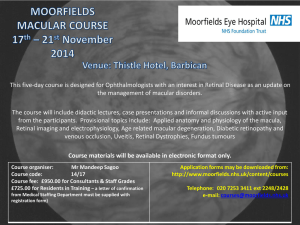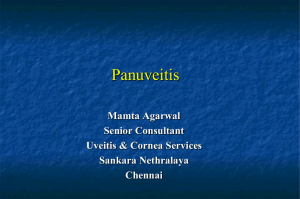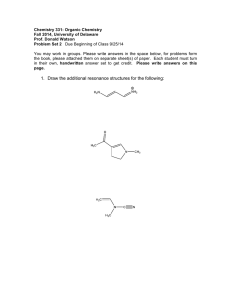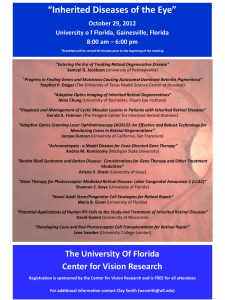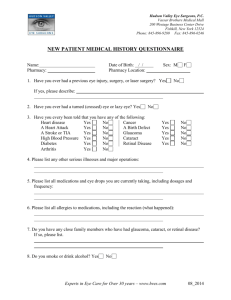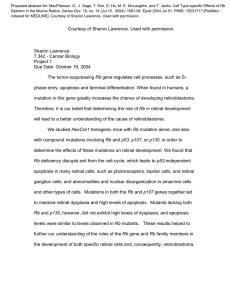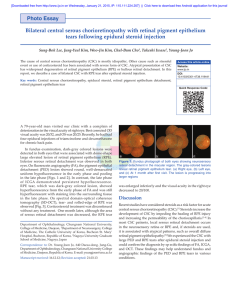Acute Myelogenous Lymphoma Masquerading as VKH Disease Nikolas London, MD
advertisement
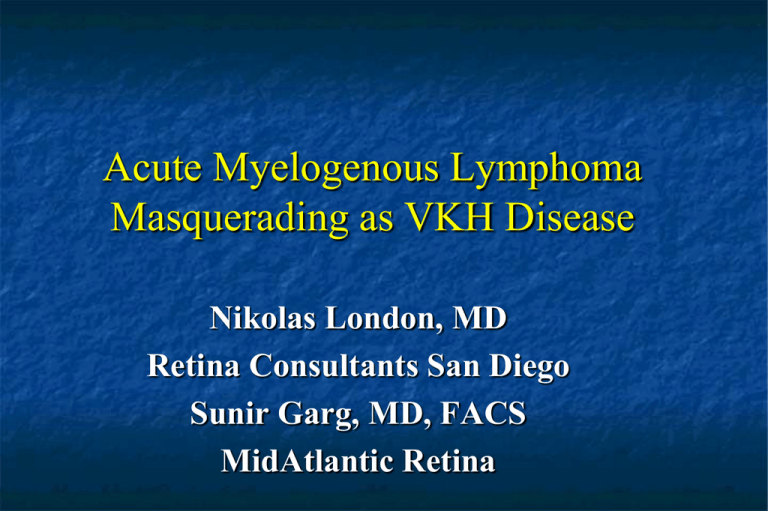
Acute Myelogenous Lymphoma Masquerading as VKH Disease Nikolas London, MD Retina Consultants San Diego Sunir Garg, MD, FACS MidAtlantic Retina Ocular History 21 year-old athletic white man with 1 week of blurred vision in both eyes Past Ocular History: none Past Medical History: recent tonsillitis Social History: College student, active weightlifter First Presentation – outside ophthalmologist VA: OD 20/40, OS 20/40 No anterior or vitreous cell Fundus: Bilateral, multifocal serous retinal detachments Foveal OCT OD OS Macular SDOCT revealing serous subretinal fluid in both eyes. Note that EDI was not obtained at presentation. First Presentation Diagnosed with VKH Disease Started on prednisolone 60 mg daily No improvement Developed intermittent face and jaw paresthesias, mild fatigue, mild bruising of his arms, and several mouth ulcers, all attributed to the prednisone First Presentation FLA and ICG Multifocal pinpoint areas of hyperfluorescence within the areas of serous retinal detachment with no evidence of choroidal perfusion abnormalities Presentation to us 1 month after onset Alert and oriented BP 163/77 Unchanged exam WBC of 327,000 cells/uL Sent immediately to ER Hospital Course Evidence of DIC Fibrinogen 61 mg/dL (140-476) D-dimer 12.3 ug/mL(< 0.5) Multifactorial respiratory failure Acute renal failure Bacteremia Leukemia cutis Subconjunctival hemorrhage Small intracranial hemorrhage Pleural effusions and leukemic infiltrates Bullous subconjunctival hemorrhages shortly after presentation Leukemia cutis Leukemia cutis Sagittal Head CT small area of subacute hemorrhage in the right posterior fronatl lobe with minimal surrounding edema Chest CT Pulmonary leukemic infiltrates, small bibasilar effusions, multiple lymph nodes Bone Marrow Biopsy markedly hypercellular, demonstrating blasts that displayed irregular nuclei, immature chromatin, and scant-to-moderate cytoplasm Peripheral Blood Smear markedly increased number of abnormal and immature monocytoid cells consistent with AML Treatment Started on systemic chemotherapy, including idarubicin and cytarabine 7 + 2 Bone marrow transplantation. Follow-up – 1 week after admission VA improved to 20/30 OD and 20/40 OS The subconjunctival hemorrhages were resolving The serous retinal detachments had resolved Fundus: few retinal hemorrhages in both eyes and a single cotton-wool spot in the right eye Enhanced depth imaging OCT revealed a prominently thickened choroid OU Follow up – 1 week after administration Few retinal hemorrhages, OD cotton-wool spot Serous retinal detachment has resolved Enhanced Depth Imaging OCT Prominently thickened choroid May result from leukemic infiltration or/and vascular congestion OD OS Final Diagnosis Leukemic choroidopathy Resolution with treatment of underlying disease Conclusion Serous retinal detachment is a rare manifestation of acute myelogenous leukemia that can mimic VKH or multifocal CSCR Accurate diagnosis and management can be lifesaving Clinicians should maintain a high index of suspicion of a hematologic malignancy in cases of “atypical” VKH or CSR and consider a CBC
